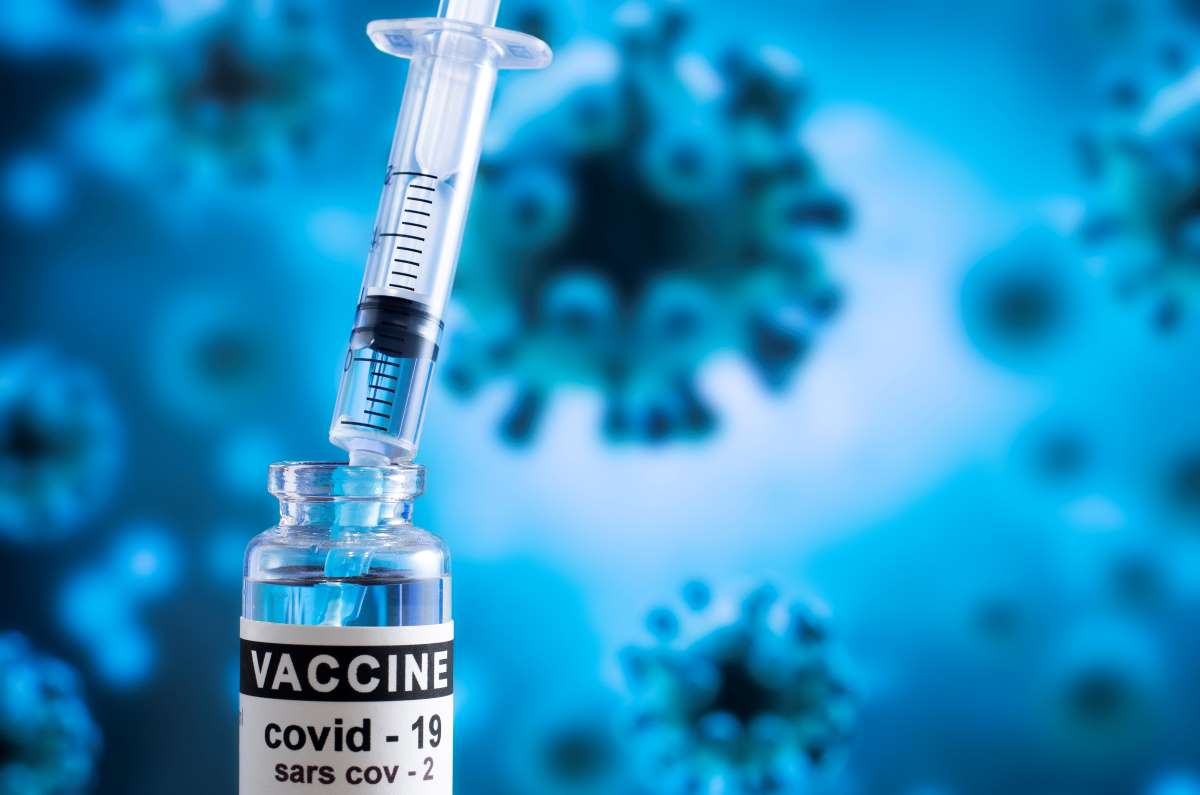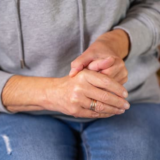To be or not to be vaccinated, that is the question
February 18, 2021 by Lisa Bywaters

10 August 2021 – Please note: This information was correct at the time of writing. But COVID-world has a rapidly changing landscape, so for the most up-to-date information about vaccines, visit the Australian Government, Department of Health website.
Did you know that the second person in the world to get vaccinated against COVID-19 (outside of a clinical trial) was William Shakespeare? The UK was the first to roll out the Pfizer vaccine, and 81 year old William was the second in line to get the jab.
Obviously the media (and people like me) couldn’t let that go by without a joke or two! So after the jab there was a chorus of “Is this a needle which I see before me?”, and “All’s well that ends well’, and the vaccines will lead to the “Taming of the Flu.” And really when it comes to it, it’s all “Much ado about nothing”.
OK, silliness over ?.
Obviously you can’t open a paper, watch the news or look at social media and not know that the COVID-19 vaccines are coming to Australia very soon. In fact the first shipment of the Pfizer/BioNTech vaccine arrived earlier this week.
There’s a lot of confusion and concern out there, so we’ve answered some of the FAQs we’re being asked. We’ve also included links to other great resources to help you understand these new vaccines and what they mean for you and your family.
What are the two main vaccines?
In Australia the Therapeutic Goods Administration (TGA) has so far approved the use of the Pfizer/BioNTech vaccine and the AstraZeneca/Oxford vaccine.
There are other vaccines in the pipeline which may be available later in 2021. However this article will focus on the two main vaccines that the Australian Government will begin rolling out in the next month or so.
It’s important to note that these vaccines are for adults only at this stage, and that children and pregnant women were not part of the clinical trials. That means we don’t have the information to ensure the vaccines are completely safe for these populations at this stage. If you’re pregnant, breastfeeding or planning a pregnancy, read the federal government’s decision making guide for more information and discuss your specific situation with your doctor.
How do they work?
We’ve all heard of DNA (deoxyribonucleic acid). It’s the genetic material that carries all the information (or genetic code) about how all living things look, develop and function.
However for many types of viruses – including influenza and coronaviruses – their genetic code is stored in their RNA (ribonucleic acid). It provides all the instructions for how the virus works.
Since very early on in the pandemic, scientists have had the genetic code for SARS-CoV-2 (the virus that causes COVID-19). This has made an incredible difference to how quickly vaccines were able to be developed, trialled and ultimately administered.
By now we’re very familiar with the spiky, crown-like surface of the coronavirus SARS-CoV-2. These spike proteins are what allows it to penetrate and enter our cells, where it proceeds to take over. The virus then instructs our cells to become a virus making factory and before you know it, you’ve got COVID-19.
Researchers have used the genetic code of SARS-CoV-2 that specifically relates to these spike proteins to develop their vaccines.
With the Pfizer/BioNTech vaccine they used the genetic code to create their own synthetic RNA. This synthetic RNA contains information of the spike protein only, not the virus itself. So it can’t give you COVID-19. The RNA information is wrapped inside a fatty coating or envelope to protect it. This stops the body from breaking it down as soon as it’s been administered.
- For more information about this type of vaccination, read more detailed information from Compound Interest: What are the COVID-19 RNA vaccines and how do they work?
The AstraZeneca/Oxford vaccine is known as a ‘viral vector vaccine’. It adds the genetic information about the spike proteins into another virus or a ‘vector’, in this case a genetically modified virus that normally causes the common cold in chimpanzees but not humans.
- For more information about this type of vaccination, read more detailed information from Compound Interest: How does the Oxford & AstraZeneca COVID-19 vaccine work? A guide to viral vector vaccines.
Despite the differences in the Pfizer/BioNTech and AstraZeneca/Oxford vaccines the body’s response is the same. Our cells again become factories – but this time they only make the spike protein (not the actual virus). The presence of this protein in our body triggers our immune system to mount an attack, which creates antibodies that are ready for if/when the real SARS-COV-2 comes knocking.
Are they safe?
The information we have to date is that these vaccines are safe to use. Our TGA has rigorous checks and balances in place before any drug (including vaccines) become available to the Australian population.
We also have the benefit of observing the rollout in large populations such as those in the UK and US, and monitoring for any unusual side effects or concerns.
Even after our vaccines are being rolled out across Australia, the TGA will continue to monitor for any issues.
How are they administered?
Like many of the vaccinations we get, the COVID-19 vaccinations will be injected into your upper arm. Both require two doses approximately 12 weeks apart. It’s important that you receive both doses.
After you’ve been vaccinated you’ll stay where you are for about 15 minutes to ensure you’re feeling ok afterwards.
What if I have a weak immune system?
If you have a medical condition, or take medications that mean you have a weakened immune system, you should still be able to receive these vaccinations. Remember the vaccines aren’t using live viruses.
The vaccines may help prevent you getting COVID-19, or prevent you getting a more serious case.
Read the latest information from the Australian Rheumatology Association: COVID-19 information. And talk with your doctor if you have any concerns at all.
Do I have to get vaccinated?
COVID-19 vaccinations are voluntary. You choose whether to have one or not.
Can I choose which one I get?
Yo will not be able to choose which vaccine you receive.
Australia has secured fewer doses of the Pfizer/BioNTech vaccine (20 million doses), compared to AstraZeneca/Oxford vaccine (3.8 million doses delivered from offshore facilities, and 50 million to be produced onshore this year).
The Australian Government, working with the state/territory governments, has a comprehensive strategy for vaccine rollout, prioritising those at greatest risk of being exposed to SARS-COV-2, or having worse outcomes if they develop COVID-19. This includes frontline health care workers, quarantine and border staff, aged and disability care workers, and aged and disability care residents.
From then on vaccinations will be a phased process, dealing with each group of vulnerable people. You can find out more about the vaccination rollout here.
You can also use the Australian Government’s Vaccine Eligibility Checker to find out which phase of the rollout you’re eligible for.
Do I have to pay for my vaccinations?
No, they’re free.
The Medicare Benefits Schedule has been amended to cover GP’s costs associated with the COVID vaccinations. That means you’ll be bulk billed for your consultation and vaccination, and won’t need to pay a thing.
Will it make me immune from catching or spreading COVID-19?
We’re not sure.
The vaccine trials were studying whether the vaccines stopped COVID-19 symptoms or reduced the severity of symptoms, not whether it protected people from getting infected with the virus. So the vaccines may not protect people from catching the virus if they’re exposed to it, but hopefully it will reduce the impact of symptoms.
We also don’t know if someone who gets vaccinated and later develops COVID-19 – but has no symptoms (asymptomatic) – is able to spread the virus to others. We just don’t have enough data.
That means that unfortunately the vaccinations won’t be a ‘get out of jail free’ card. We’ll still need to do all the things we’ve been doing for the last year – wash our hands with soap and water regularly, use hand sanitiser, practise physical distancing, wear a mask if required, and get tested and isolate if you feel sick.
What are the side effects?
Some people (not all) may feel a bit off colour for a day or two. They may experience flu-like symptoms (muscle and joint pain, headache, chills), and/or pain and redness where they received the injection. This is your immune system responding to the vaccine, not to the virus. The best thing to do is look after yourself, find a comfy position on the couch and watch your latest binge-worthy show.
Can I catch COVID-19 from these vaccines?
No, as the vaccines aren’t live.
Do I still need to get a flu vaccination this year?
Yes, if you normally get a flu shot each year, plan to do it again.
Influenza viruses are different to SARS-COV-2, and so the vaccinations are different.
However it’s important that you allow 14 days between a flu vaccination and either dose of the COVID-19 vaccination. Your doctor can give you more information and help you make sure your timing is right.
Will getting vaccinated make everything go back to ‘normal’?
If by normal you mean, pre-COVID craziness, it’s very unlikely. Apart from the potential for being asymptomatic and possibly spreading the virus even after vaccination, there’s still a lot of unknowns. Even though it feels like it’s all been going on forever, in the life of a new virus and the work needed to get it under control, we still have a ways to go. The only way to do that is to stop the spread of the virus.
When it comes to vaccination, the World Health Organization has stated that “a substantial proportion of a population would need to be vaccinated, lowering the overall amount of virus able to spread in the whole population”. What ‘substantial’ means exactly isn’t clear, and numbers from 50-80% of the population have been thrown around from a variety of sources.
But it’s not all cause for gloom. This time last year we were just entering the pandemic and there was so much we didn’t know. But science has made amazing strides, collaboration between researchers and big pharmaceutical companies has been unprecedented and we’ve learned so much about ourselves as we’ve led much smaller, intimate lives.
Yes, we’re still in the middle of this pandemic, but we’ve come so far and grown so much. And for that we should all be proud and continue moving forward – one step at a time.
Contact our Help Line
If you have questions about things like managing your pain, your musculoskeletal condition, treatment options, COVID-19, telehealth, or accessing services be sure to call our nurses. They’re available weekdays between 9am-5pm on 1800 263 265; email (helpline@msk.org.au) or via Messenger.
More to explore
- 5 things you need to know about the AstraZeneca vaccine now the TGA has approved it for use in Australia
The Conversation, 17 February 2021 - Are the Pfizer and Oxford-AstraZeneca COVID-19 vaccines safe? What are the side-effects?
ABC News, 27 January 2021 - Vaccine Eligibility Checker
Australian Government - COVID-19 vaccines
Australian Government - COVID-19 vaccines
Vaccine Knowledge Project, University of Oxford, 22 January 2021 - Experts back the TGA over AstraZeneca COVID-19 vaccine data ‘concerns’, but say new studies show it’s a ‘good vaccine’
ABC News, 17 February 2021 - FAQs about COVID-19 vaccines
Vaccine Knowledge Project, University of Oxford, 22 January 2021 - When will you get the COVID-19 vaccine?
ABC News, 5 February 2021 - What are the COVID-19 RNA vaccines and how do they work?
Compound Interest, 2 December 2020 - How does the Oxford & AstraZeneca COVID-19 vaccine work? A guide to viral vector vaccines
Compound Interest, 30 December 2020 - How will COVID-19 vaccines be approved for use in Australia?
The Conversation, 2 January 2021 - These are the most common questions people have about booking a COVID vaccine
ABC News, 20 March 2021 - What are the ingredients in the COVID-19 vaccines? Here what’s in the Pfizer and AstraZeneca jabs
ABC Health & Wellbeing, 3 March 2021














